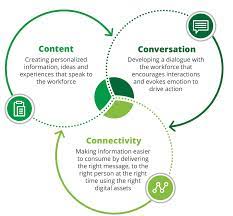Maximising Business Impact: Leveraging Digital Marketing and Social Media Strategies
The Power of Digital Marketing and Social Media
In today’s digital age, the role of digital marketing and social media in promoting businesses and engaging with customers has become more crucial than ever. With the widespread use of the internet and social networking platforms, businesses have a unique opportunity to reach their target audience in a more direct and personalised way.
Digital marketing encompasses a wide range of strategies and tactics aimed at promoting products or services through online channels. This includes search engine optimisation (SEO), pay-per-click advertising, email marketing, content marketing, and more. By leveraging these digital tools, businesses can increase brand awareness, drive website traffic, generate leads, and ultimately boost sales.
Social media plays a significant role in digital marketing by providing businesses with a platform to connect with their audience on a more personal level. Platforms such as Facebook, Instagram, Twitter, LinkedIn, and YouTube allow businesses to share content, engage with followers, run targeted ads, and build brand loyalty.
One of the key advantages of social media is its ability to facilitate two-way communication between businesses and customers. Through social media channels, businesses can receive feedback, address customer queries or concerns promptly, and build relationships that foster trust and loyalty.
Furthermore, social media platforms offer valuable insights into consumer behaviour and preferences through analytics tools. By analysing data such as engagement metrics, demographics, and user interactions, businesses can refine their digital marketing strategies for better results.
It’s essential for businesses to have a strong digital marketing strategy that incorporates social media to stay competitive in today’s market. By creating compelling content that resonates with their target audience, engaging with followers authentically, and continuously adapting to changing trends and algorithms, businesses can harness the power of digital marketing and social media to achieve their goals.
Overall, the integration of digital marketing and social media has revolutionised the way businesses promote themselves and interact with customers. Embracing these powerful tools can help businesses thrive in an increasingly digital world.
Understanding Digital Marketing and Social Media: Answers to 7 Common Questions
- Is social media marketing and digital marketing same?
- What skills are required for digital marketing?
- What are the 4 main of digital marketing?
- Does digital marketing use social media?
- What is digital marketing and social media?
- What is the role of social media marketing in digital marketing?
- What is digital and social media marketing degree?
Is social media marketing and digital marketing same?
The question of whether social media marketing and digital marketing are the same is a common one in the realm of digital promotion. While social media marketing is indeed a subset of digital marketing, it focuses specifically on leveraging social platforms to engage with audiences, build brand awareness, and drive conversions. On the other hand, digital marketing encompasses a broader spectrum of online strategies beyond social media, including email marketing, search engine optimisation, content marketing, and more. Understanding the distinction between the two is crucial for businesses looking to create comprehensive and effective online marketing campaigns that resonate with their target audience across various digital channels.
What skills are required for digital marketing?
In the realm of digital marketing, a diverse set of skills is essential for success in navigating the dynamic landscape of online promotion and engagement. Proficiency in data analysis and interpretation is crucial for understanding consumer behaviour and making informed strategic decisions. Creativity plays a pivotal role in crafting compelling content that resonates with target audiences across various digital platforms. Technical skills, such as search engine optimisation (SEO) and proficiency with digital marketing tools, are valuable for maximising online visibility and reach. Additionally, strong communication skills are necessary for effective engagement with customers through social media channels and email marketing campaigns. Adaptability to evolving trends and a continuous willingness to learn and upskill are also key attributes for thriving in the ever-changing field of digital marketing.
What are the 4 main of digital marketing?
When it comes to digital marketing, understanding the four main pillars is essential for a successful strategy. The four key components of digital marketing are search engine optimisation (SEO), pay-per-click advertising (PPC), social media marketing, and email marketing. SEO focuses on improving a website’s visibility in search engine results, while PPC involves paid advertising placements to drive traffic. Social media marketing utilises platforms like Facebook and Instagram to engage with audiences, and email marketing targets customers through personalised messages. By incorporating these pillars into a cohesive digital marketing plan, businesses can effectively reach their target audience and achieve their marketing goals.
Does digital marketing use social media?
Yes, digital marketing often utilises social media as a key component of its strategies. Social media platforms play a crucial role in digital marketing by providing businesses with a direct channel to engage with their target audience, share content, run targeted ads, and build brand awareness. Through social media, businesses can interact with customers in real-time, gather feedback, and create personalised experiences that drive engagement and loyalty. Incorporating social media into digital marketing efforts allows businesses to reach a wider audience, increase visibility, and ultimately achieve their marketing objectives more effectively in today’s digital landscape.
What is digital marketing and social media?
Digital marketing encompasses a range of online strategies and tactics used by businesses to promote their products or services through digital channels. This includes methods such as search engine optimisation (SEO), email marketing, pay-per-click advertising, content marketing, and more. On the other hand, social media refers to platforms where users can create and share content, engage with others, and interact with brands. Social media platforms like Facebook, Instagram, Twitter, LinkedIn, and YouTube provide businesses with opportunities to connect with their target audience on a more personal level and build relationships that drive brand awareness and loyalty. In essence, digital marketing leverages online tools to reach potential customers effectively, while social media enhances engagement and communication between businesses and their audience in a more interactive manner.
What is the role of social media marketing in digital marketing?
Social media marketing plays a pivotal role in digital marketing by providing businesses with a powerful platform to connect and engage with their target audience on a more personal level. Through social media channels, businesses can create and share content, interact with followers, run targeted advertising campaigns, and build brand awareness. Social media marketing allows businesses to humanise their brand, foster relationships with customers, gather valuable insights through analytics, and drive website traffic. By integrating social media into their digital marketing strategy, businesses can enhance their online presence, reach a wider audience, and ultimately achieve their marketing objectives more effectively.
What is digital and social media marketing degree?
A digital and social media marketing degree is a specialised academic programme that equips students with the knowledge and skills needed to excel in the dynamic field of online marketing. This degree focuses on teaching students how to effectively leverage digital platforms and social media channels to promote products or services, engage with target audiences, and achieve marketing objectives. Students enrolled in this programme typically study topics such as search engine optimisation (SEO), content marketing, social media strategy, digital advertising, analytics, and consumer behaviour in the online space. By obtaining a digital and social media marketing degree, individuals can gain a competitive edge in the industry and pursue rewarding career opportunities in the ever-evolving realm of digital marketing.




